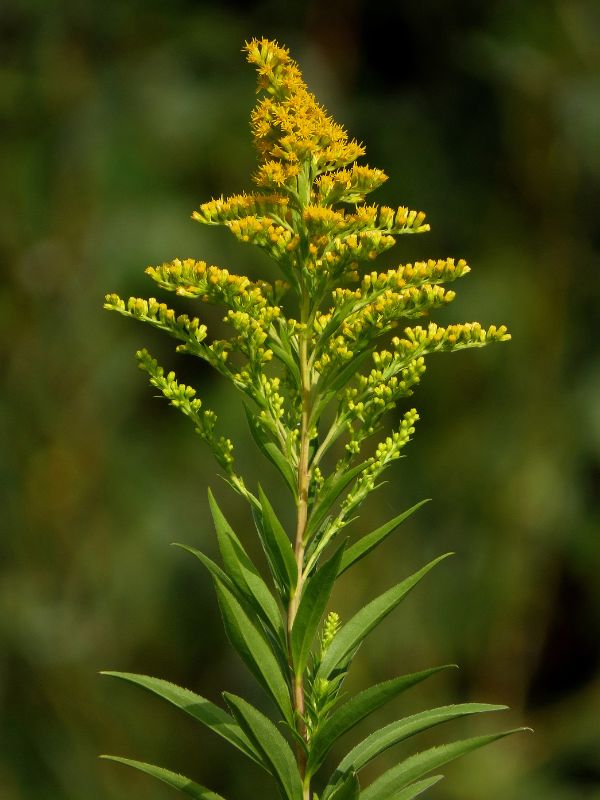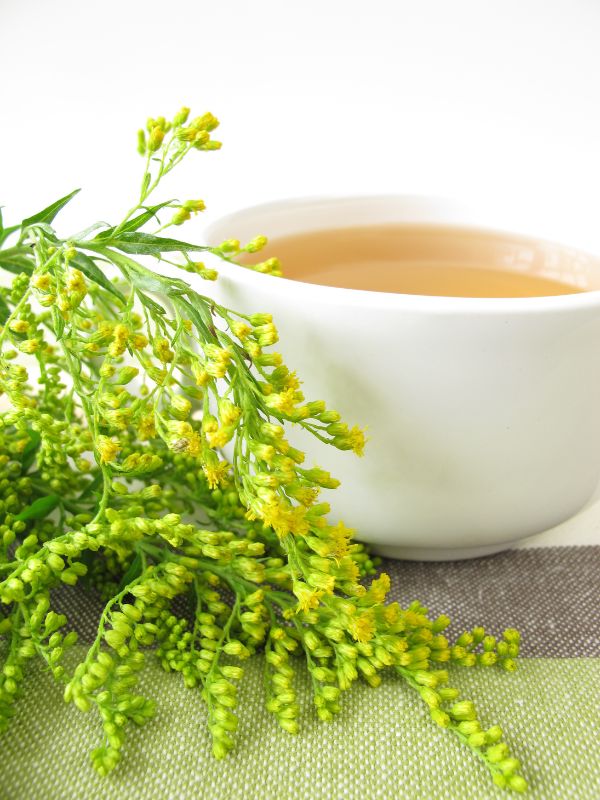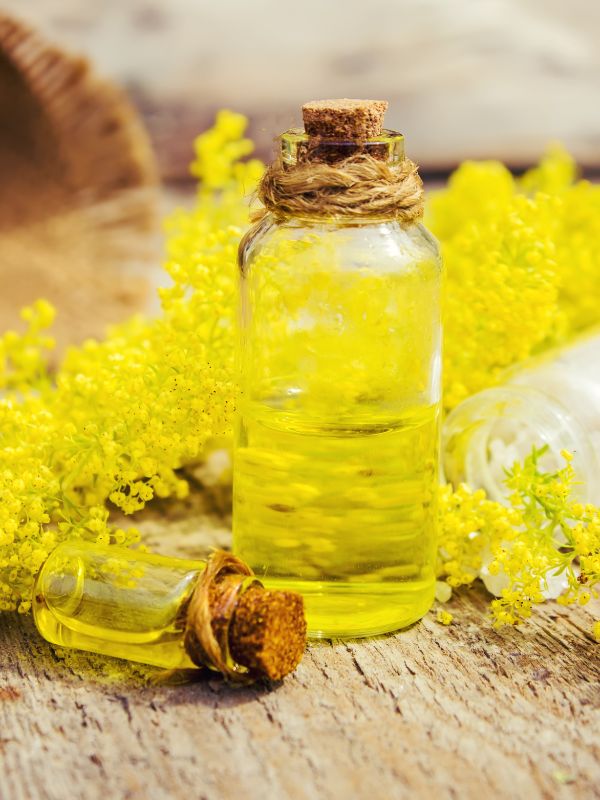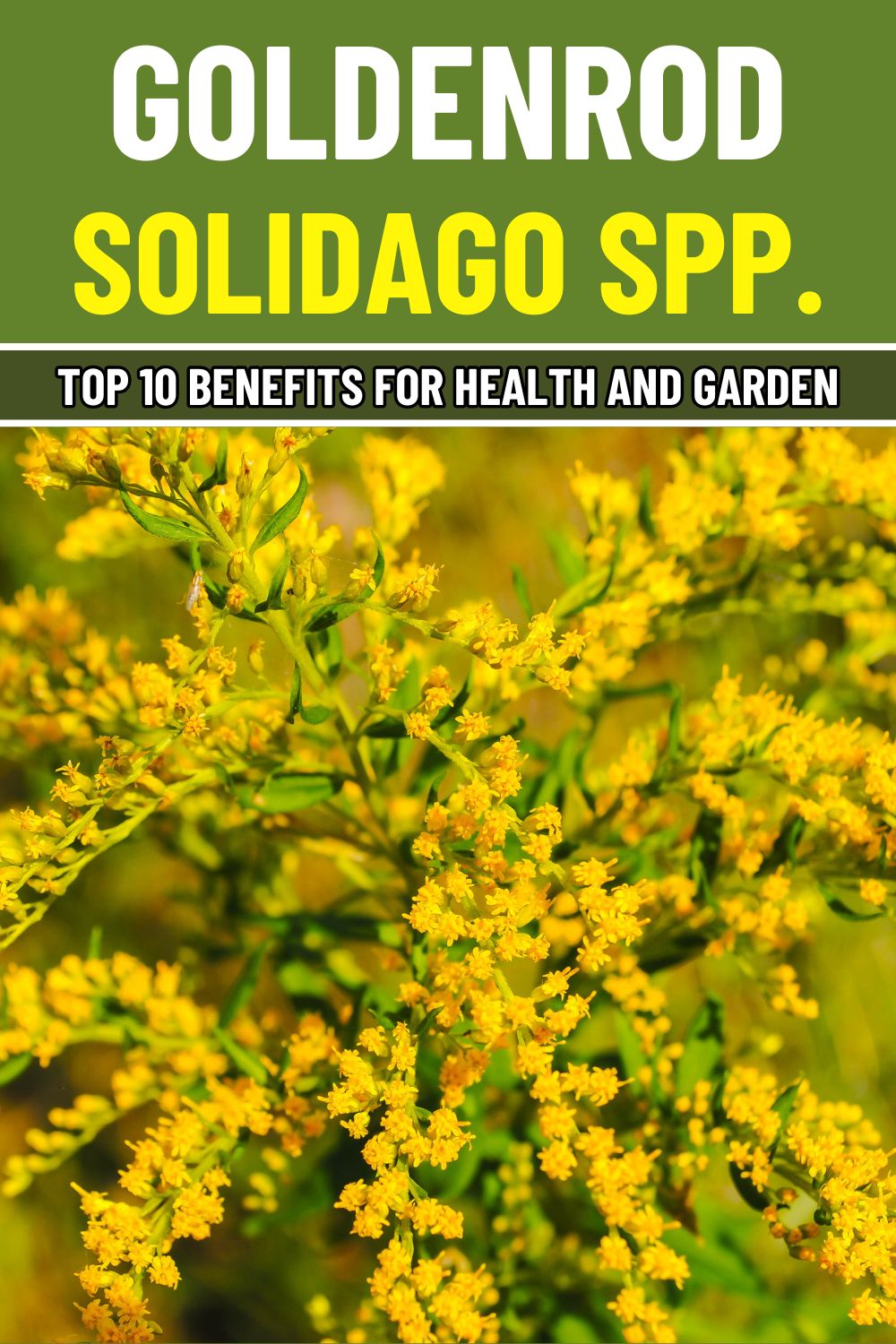Goldenrod (Solidago spp.), a golden-yellow perennial herb, has captivated gardeners and herbalists alike. Native to North America, Europe, and Asia, this resilient plant is not only stunning but also a powerhouse of medicinal benefits.
Revered in traditional medicine, goldenrod has been used to support urinary health, combat inflammation, and promote overall wellness.
With its rich history and scientifically backed properties, goldenrod proves it’s more than just a garden beauty—it’s a natural remedy you’ll want to explore further.
#1. Supports Urinary Health
Goldenrod’s diuretic properties help eliminate excess fluids and prevent urinary tract infections (UTIs).
Studies, such as one published in Planta Medica, highlight its role in reducing inflammation in the urinary tract and promoting healthy kidney function.
It’s often used in combination with other herbs to treat mild UTIs naturally.

#2. Rich in Antioxidants
Goldenrod contains flavonoids like quercetin, rutin, and kaempferol, which combat oxidative stress by neutralizing free radicals.
These antioxidants reduce the risk of chronic diseases such as cardiovascular issues and certain cancers.
A 2018 study in the Journal of Ethnopharmacology confirms its potent antioxidant activity.
#3. Fights Inflammation
As an anti-inflammatory agent, goldenrod helps alleviate joint pain, arthritis, and muscle soreness.
Its compounds, such as saponins, inhibit inflammatory pathways, providing natural relief without the side effects of synthetic drugs.

#4. Improves Digestive Health
Goldenrod tea soothes the digestive system, alleviating bloating, cramps, and indigestion.
Additionally, its mild carminative effects can enhance nutrient absorption and calm an irritated gut.
#5. Boosts Respiratory Health
Goldenrod acts as a natural expectorant, clearing mucus and soothing respiratory ailments like colds, sinusitis, and mild bronchitis.
A 2020 study noted its role in reducing inflammation and swelling in the respiratory tract.

#6. Promotes Healthy Skin
The plant’s antimicrobial and wound-healing properties make it a popular choice for treating skin issues like eczema, rashes, and cuts.
Goldenrod-infused salves or compresses reduce redness, accelerate healing, and protect against infections.
#7. Aids in Detoxification
Goldenrod supports the body’s natural detox processes by encouraging the elimination of toxins through increased urination.
This effect can also help reduce bloating and water retention.

#8. Enhances Garden Biodiversity
Goldenrod isn’t just beneficial for health; it’s a magnet for bees, butterflies, and other pollinators.
Adding it to your garden improves ecosystem health, especially in late summer when its blooms provide essential nectar.

#9. May Support Weight Management
Preliminary research suggests goldenrod’s diuretic and metabolic-boosting properties may support weight management efforts.
By reducing bloating and improving metabolism, it complements a balanced diet and exercise routine.

#10. Anti-Microbial Properties
Goldenrod extracts have shown effectiveness against certain bacteria and fungi, making it useful for natural cleaning solutions or as a topical antiseptic.
A study published in Fitoterapia identified its potential as an antimicrobial agent.
How to Use Goldenrod
- Tea: Steep 1–2 teaspoons of dried goldenrod in hot water for 10 minutes. Drink up to three cups daily for urinary and digestive support.
- Tincture: Combine fresh flowers with alcohol (vodka or brandy) and let sit for 4–6 weeks. Use a dropper to take 15–20 drops daily.
- Skin salve: Infuse goldenrod flowers in oil and use them to soothe minor wounds, rashes, or dry skin.
- Garden addition: Plant goldenrod to attract pollinators and brighten your landscape.
- Compress: Apply a cloth soaked in goldenrod tea to swollen joints or irritated skin for relief.

Cautions and Precautions
While goldenrod is safe for most, its diuretic effects can lead to dehydration if overused. Drink plenty of water when using goldenrod-based remedies.
Those with ragweed allergies should test for sensitivity, as goldenrod and ragweed often grow together, leading to confusion.
Pregnant or breastfeeding women and individuals with kidney disease should consult a healthcare provider before incorporating Goldenrod into their routine.
Disclaimer
This article is for informational purposes only and not a substitute for professional advice.
Always consult your healthcare provider before introducing new herbs or remedies into your diet or lifestyle.

The Surprising Health and Garden Benefits of Goldenrod You Need to Know
